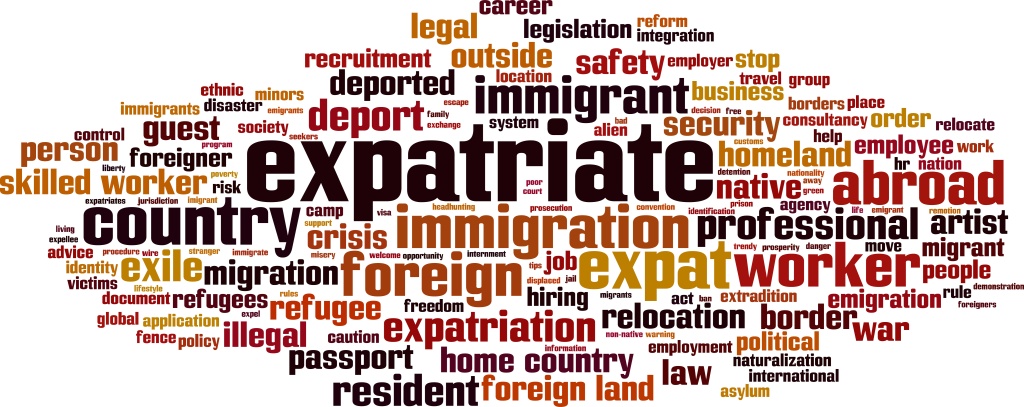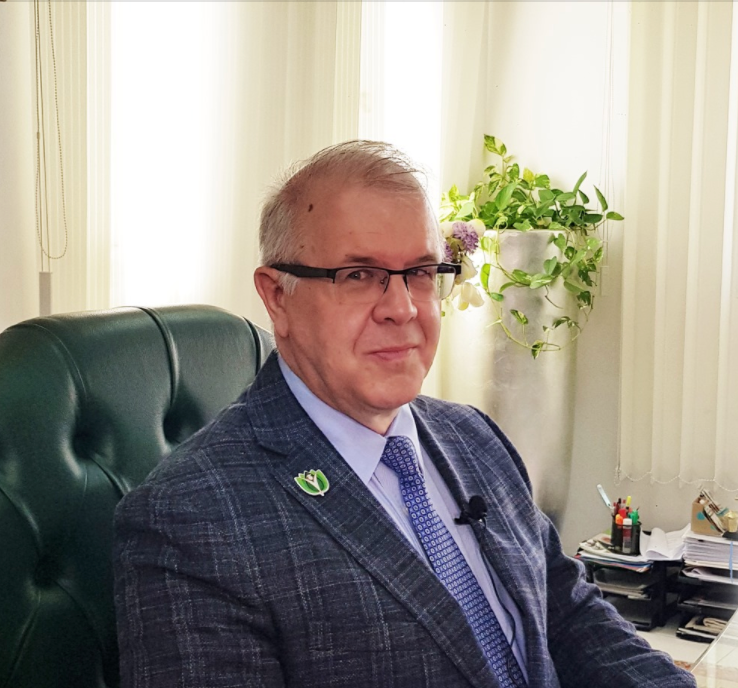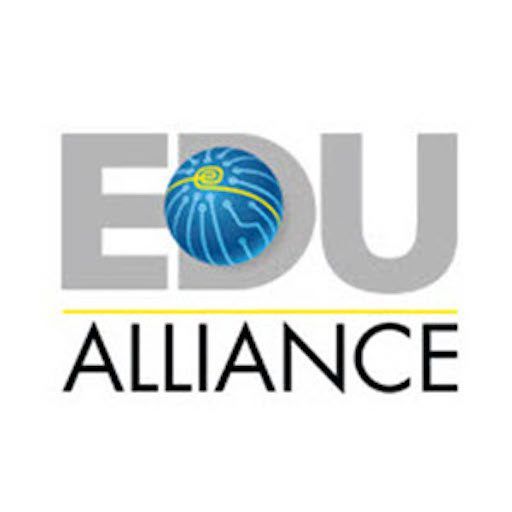February 28, 2022 by Dr. Bruce Taylor In the West, it’s common to view globalization through an inbound lens: international students and scholars come to North America or Europe for study or work, with some returning home and others perhaps choosing to remain. But the outbound movement of Western scholars to non-Western settings has always been present, although less visible. In my own case, I came onto the academic job market in the early 1980s, a time of severe global recession when jobs in many fields, including higher education, were scarce. When I broke with all expectations and accepted a faculty position at the Chinese University of Hong Kong in 1982, I figured I would likely teach there 2-3 years before returning to more familiar territory in the United States. Those initial 2-3 years ended up stretching to 38 ½ years before I retired in March 2021, covering six countries and territories and incorporating a move from faculty to academic administration.
In my time outside of America, I’ve known hundreds of expatriates in similar situations to my own, some as close friends and colleagues, others as more casual acquaintances. The motivations to pursue an expatriate career are as varied as the individuals themselves. The intangible value of immersion in diverse cultures, different from one’s own, is often cited as a benefit for residing abroad. This benefit is real, and I value it greatly. It was equally significant for my wife and me to pass on a multicultural world view, not from books or YouTube videos but lived experiences, to our children. For others, the opportunity for world travel is an incentive or the chance to reinvent oneself by surmounting new challenges. And for some scholars, there are academic benefits to living and working in a locality or culture where one’s research is centered.
But although an expatriate career can be very rewarding, it comes with its own set of cautions and caveats. What follows is a selection of thoughts, including those cautions and caveats, distilled from my experiences and those of other expats I’ve known well, which I hope are useful to readers considering a career change or redirection that involves an international relocation.

Research priorities may need to shift. To some extent, this is inevitable when, say, a faculty member assumes administrative responsibilities. But in an international setting, other factors come to bear on a scholar’s ability to sustain a research agenda. Funding opportunities and grant support may be harder to come by or mainly restricted to nationals of the country. Graduate assistants and postdoctoral researchers are scarce in many localities without robust traditions of graduate education of their own. Import of laboratory equipment is costly. The local context may indicate a particular slant that needs to be given to a research program to address decision-makers’ concerns. Even a research subject that would seem universally applicable – think of the impacts of climate change, for instance – is looked on differently in different places. Sea level rise may be the main concern in one country, desertification in another, intensification of weather patterns in a third.
In my experience, these concerns are well understood by faculty. I faced more resistance as a CEO than I’d anticipated trying to persuade other expatriates and some local colleagues to take on administrative responsibilities in areas where faculty involvement is crucial, such as strategic planning and academic quality assurance. Almost without exception, the sticking point was less time for research. (It didn’t help, of course, that budget constraints in these institutions necessitated a four-course-per-semester teaching load).
Flexibility is valued. I ended up as the secretary to five university committees in my second administrative position, only two of which related closely to my job description. The justification was that the working language of the university administration was English, and the specialist art of recording minutes for committee meetings was out of the comfort zone for many of the school’s managers – even those who spoke the language fluently. As a native speaker, I was perceived to be more capable of rendering the nuances of language for inclusion in the permanent record of the committees’ proceedings. Other expatriates I knew volunteered other skills – in one case, an administrator agreed to coach an American football team that local students had organized without much knowledge of the sport. Once an expatriate’s particular skills and competencies become known, they can expect to be offered the chance to use them – even in ways that are unanticipated when starting the job.
Networks are valuable. In my experience, career expatriates are mobile, and it’s unusual to spend one’s entire career at one institution. Even within the same country, there often are ample opportunities to move between institutions. Twice in my career, when I needed to make a change, I leveraged connections I had made in earlier positions to land my next one. Alongside this, there are places where tenure is non-existent, due process can’t be relied upon, and owners or senior managers can be capricious in their decision-making. A professional network represents the best social safety net for an expatriate, and cultivating one is time well spent in those conditions.
Family buy-in makes all the difference. It is vital for an expatriate with a family to research living conditions that will impact the household’s quality of life before accepting a position. Some countries don’t allow trailing spouses to work locally. (Virtually may be a different story). Schooling opportunities for children may be non-existent in some locations, apart from international schools, ranging from merely pricey to eye-wateringly expensive. Housing options may seem very costly in relation to the units’ size or quality. The days of “expat packages” such as I first enjoyed in Hong Kong, where family budgets were cushioned with allowances for housing or schooling or home leave that were part of the overall compensation scheme, are long gone in most parts of the world. These difficulties are usually surmountable, but the spouse and children may need to accept some disruption and dislocation in the short term. A sense of adventure might motivate many expatriates, but it needs to be a shared sense of adventure.
Retirement planning will look different. In many countries, participation in a public retirement scheme is limited to citizens of that country. An expatriate might receive instead an end-of-contract lump-sum gratuity payment, the size of which may vary depending on final salary and years of service. A move to different countries in the course of one’s career might result in several of these one-off payments coming in at different times. It is on the individual’s shoulders to convert these irregular lump sums, together with any accumulated regular savings, into an adequate income stream for retirement. Doing so is doubly essential for expats intending to ultimately retire in their home country but who haven’t had the chance to contribute to its Social Security or pension system while working elsewhere.
Every society is fractured. Every nation and culture has its social divisions, which may be along very different lines than an expatriate is used to. Geographical divides, linguistic divides, caste or social class, divides, “native” versus “foreigner” divides – any of these can set groups within the community apart from each other. Expatriates need to be aware of the basis for social fractures that, left unaddressed, can disrupt the life of the institution. Concepts such as “diversity” and “inclusion” will take on new meanings in the local context depending on the nature of the gap to be bridged and the willingness of the institution’s leadership to take actions in that direction.
Local politics can be challenging. In all of my time outside the US, I never held a position in a Western-style democracy. Two of the places where I worked were colonies, two were monarchies, and two were one-party states. Co-workers who are local to the country may have different levels of political involvement, from government apologists to dissidents to wholly apathetic. Although expatriates are not expected to insert themselves into political controversies, there may be a temptation from time to time to comment – say, in response to an action on the local or national government’s part that one feels strongly about. My suggestion is to resist doing so, at least in public, like social media. The reputational risks, not to mention the risks of alienating co-workers with other views, are too high.
Going back to the home country may be daunting. I’m not only thinking about those who have fallen in love with and married a partner from the host country – though that indeed happens! But less dramatically — over time, and with more prolonged exposure to the host country’s culture and society, and the challenges that the country and its residents face, an expatriate’s teaching inevitably skews towards “local relevance” — a focus on host country nationals, and host country traditions. Western textbooks, for instance, are supplemented with examples that students can relate to. Assignments, examinations, internships, project supervision, thesis, and dissertation supervision if teaching at the graduate level – all may look quite different after a few years as an expatriate faculty member. After a point, it may seem too troublesome to reinvent one’s teaching yet again, to conditions in the home country. Staying put, or perhaps another expatriate position, becomes the path of least resistance.
A related issue, and one that’s well known in respect of corporate relocations, is whether an expatriate’s accumulated experience outside the home country will be valued by hiring committees or Deans or Board members there if he or she is seeking to relocate. I never had to find this out, but anecdotal evidence often suggests otherwise, especially for administrators. For example, very seldom do the listings of new presidents or provosts in Inside Higher Ed or The Chronicle of Higher Education include appointees – even Americans- who were based in a non-Western country prior to their move.
All things considered, I’d certainly do it again, and I think my family would too. There have been so many small rewards, seemingly insignificant in isolation but adding up to an immeasurably satisfying working life. Some of my most cherished moments were the evenings in my office when I hand-signed a batch of student diplomas, giving official validation to the personal time invested and the individual and familial sacrifices each of the students had made in pursuit of their degrees while also commemorating the labors of the faculty and staff whose support was essential to get them to that milestone. In the end, I can’t think of any tribute or award that could ever be more meaningful or leave me with greater satisfaction.
Key Points to Consider
- Research priorities may need to shift
- Flexibility is valued
- Networks are valuable
- Family buy-in makes all the difference
- Retirement planning will look different
- Every society is fractured
- Local politics can be challenging
- Going back to the home country may be daunting
Dr. Bruce Taylor recently retired after a career of nearly 40 years in the field of higher education. He has worked in Hong Kong, Kuwait, Macau, Kazakhstan, Cambodia, and The United Arab Emirates. Dr. Taylor served in a variety of higher education positions ranging from faculty, academic administration, accreditation commissioner, and university President. He has his Bachelor’s from The University of Akron, Masters from the University of North Carolina, and a PhD in Urban Planning from Harvard University. Bruce serves as a consultant for Edu Alliance.
Edu Alliance Group, Inc. (EAG) is an education consulting firm located in Abu Dhabi, the United Arab Emirates, and Bloomington, Indiana, USA. We assist higher education institutions worldwide on a variety of mission-critical projects. Our consultants have accomplished university/college leaders who share the benefit of their experience to diagnose and solve challenges.
EAG has provided consulting and successful solutions for higher education institutions in Australia, Egypt, Georgia, India, Kazakhstan, Morocco, Nigeria, Uganda, United Arab Emirates, and the United States.
Edu Alliance offers higher education institutions consulting services worldwide. If you like to know more about how Edu Alliance can best serve you, please contact Dean Hoke at dean.hoke@edualliancegroup.com




Great read Dean. Bruce has had an exciting career!
Get Outlook for iOS ________________________________
LikeLike